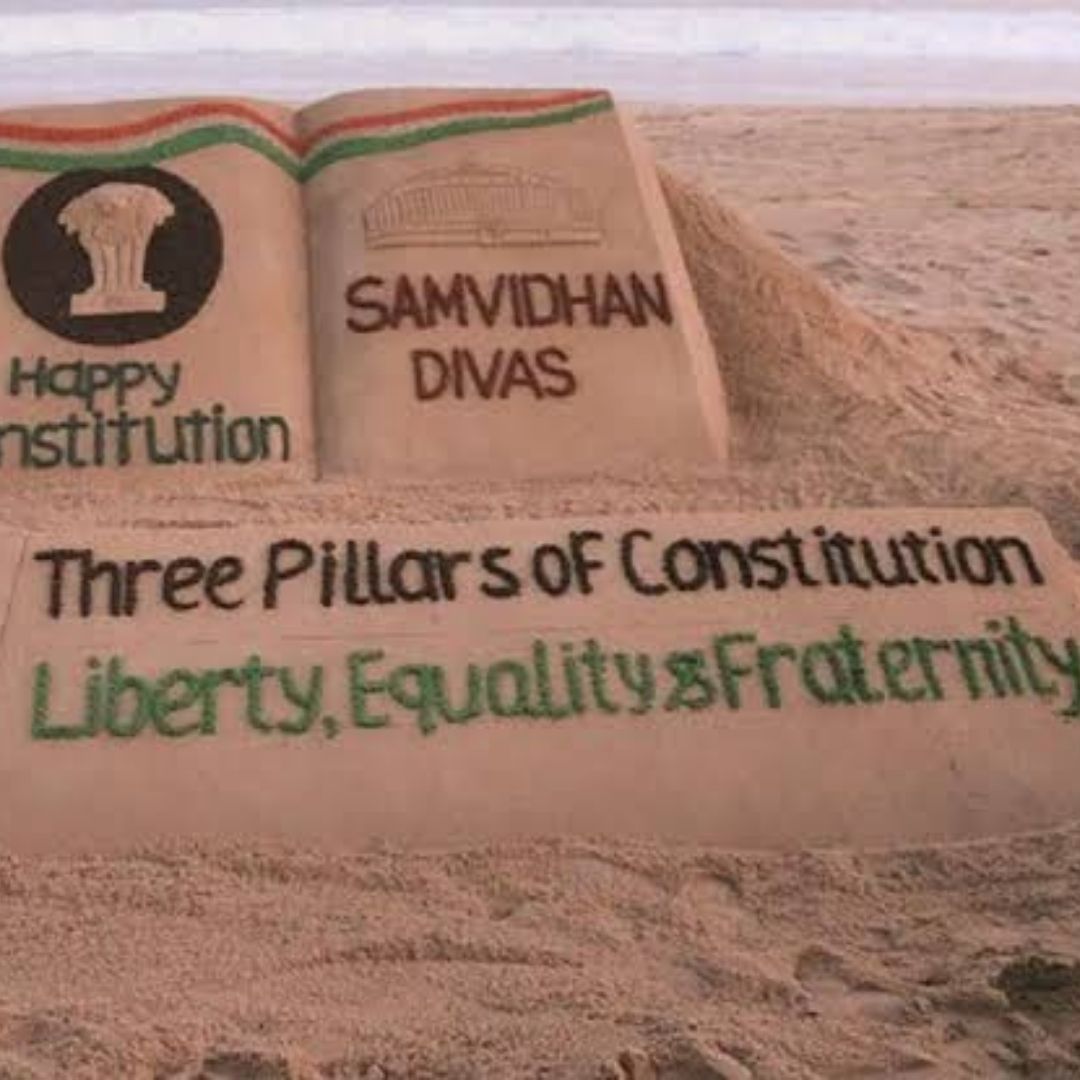
Image Credits: The Economic Times
Constitution Day: A Look At Historical Amendments Made To The Indian Constitution
Writer: Akanksha Saxena
I am a budding journalist who loves to write stories that have the ability to connect with people.
India, 26 Nov 2021 11:42 AM GMT | Updated 26 Nov 2021 11:49 AM GMT
Editor : Snehadri Sarkar |
While he is a massive sports fanatic, his interest also lies in mainstream news and nitpicking trending and less talked about everyday issues.
Creatives : Akanksha Saxena
I am a budding journalist who loves to write stories that have the ability to connect with people.
The Constitution of India was adopted on November 26, 1949 that came into effect two months later on January 26, 1950. Each year, November 26 is celebrated as Constitution Day or National Law Day.
The Constitution of India is a sacrosanct document. It lays down various provisions that ensure fundamental rights to its citizens. Along with this, it has important tenets that make India what it is today and any prevailing government cannot overrule it in the parliament.
November 26 is an important day in Indian history. In 1949, the Constituent Assembly adopted the Constitution and it came into effect on January 26, 1950. It became India's prime governing document by replacing the Government of Act in 1935. The Constitution, in turn, made the Dominion of India into the Republic of India. The Indian government declared November 26 as 'Constitution Day' or 'National Law Day' in November 2015. Dr. B.R. Ambedkar, known as the 'Father of Indian Constitution', is remembered very fondly on this day.
Constituent Assembly
The Indian Constitution's inception can be attributed to various instances in the pre-independence era. The Constituent Assembly was chosen by the provincial assemblies' elected members. M.N. Roy, a member of the Communist movement in the country, but the idea forward behind the same. Later, it was taken up in the Indian National Congress sessions and in the Government of India Act, 1935.
The Constituent Assembly had 389 members, including 15 women. Some of the prominent members include Dr. B.R. Ambedkar, Jawaharlal Nehru, J.B. Kripalani, Abul Kalam Azad, Dr Rajendra Prasad, Rajkumar Amrit Kaur, Sarvepalli Radhakrishnan, Syama Prasad Mukherjee, Durgabai Deshmukh, among many others.
Historical Amendments
The Indian Constitution is considered to be the longest written in the world. Over the years, it has undergone several amendments to be with the changing times. This is possible because of Article 368, allowing the Parliament to make the necessary changes. The amendments are not easy to pull off, as the prevailing provisions have to be kept in mind. The landmark case of Kesavananda Bharati in the 1970s ensured that the Constitution stayed true to today. It stated that while it can be subjected to change, the fundamental rights should not be changed at any cost.
Without further ado, let us take a look at some of the historical amendments made to the Indian Constitution.
The Constitution (24th Amendment Act) -1971
This amendment overturned the decision made in a case from the 1960s called I.C Golaknath vs State of Punjab. Under it, the Constitution was not allowed any changes that could potentially curtail fundamental rights. Under the 1971 precedent, Articles 13 and 358 were allowed to be amended, which meant bringing a slight change in the fundamental rights.
The Constitution (61st Amendment Act) - 1989
The all-important amendment was brought about, keeping in mind the country's young population. It reduced the voting age for Lok Sabha and State Legislative Assembly elections from 21 to 18. The bill was introduced in December 1988 by B.Shankaranand, the Water Resources Minister. "The present-day youth are literate and enlightened and the lowering of the voting age would provide to the unrepresented youth of the country an opportunity and become a part of the political process," Wikipedia quoted a part of the amendment bill's text.
The Constitution (73rd Amendment Act) 1992
This act plays an important role in enabling village panchayats to work as 'functions of self-government.' The amendment makes sure that each state has 'Panchayati Raj' while using their geographical and socio-political background knowledge to implement the needful. Some of the act's important features include the creation of a 'Gram Sabha', Reservations in Panchayats, Finance Commission, etc. On December 24, 1996, the act was extended to tribal areas in states such as Andhra Pradesh, Gujarat, Himachal Pradesh, Maharashtra, Madhya Pradesh, Odisha, and Rajasthan.
The Constitution (88th Amendment Act) 2002
An important amendment, this makes the Right to free and compulsory education a fundamental right for children in the age group 6 to 14 years of age. Both Article 21-A of the Indian constitution and the Right to Education (RTE) Act came into effect on April 1, 2010. Under them, specific duties are laid down for the state governments to follow to impart education to the children, appoint qualified teachers in schools depending on the teacher-pupil ratio, and prohibit physical punishment and mental harassment.
Also Read: Constitution Day: World's longest, Indian Constitution Is Unique In Content, Spirit
 All section
All section














